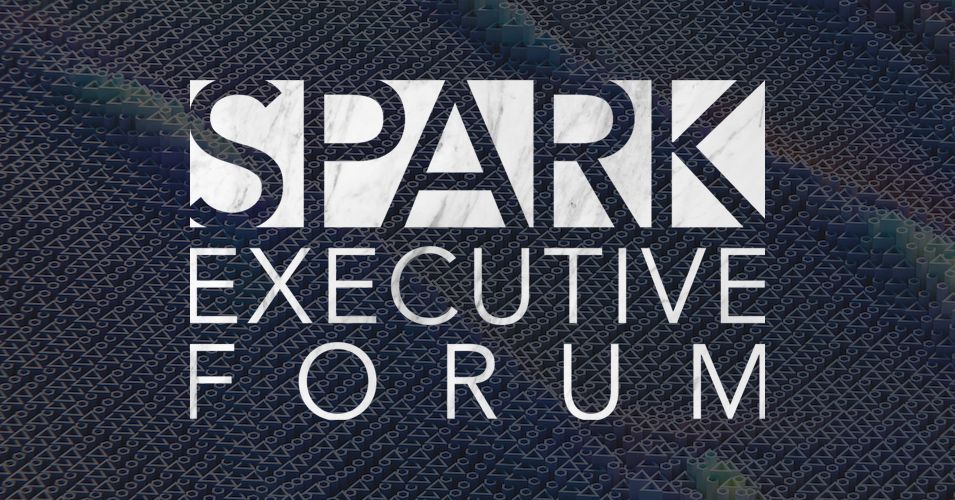As the COVID-19 crisis continues to evolve, it’s become clear that a return to “normal” will not be a return to business as usual. But with change comes opportunity.
In fact, with many businesses paused or slowed, this is a once-in-a-lifetime opportunity: a chance to accelerate the transformations that organizations have been planning – or putting off – for years. This is the moment to overcome the resistance to change that has prevented people at every level, from executives to employees to customers, from shedding old thinking, outdated belief systems and legacy technology.
As challenging as this time of crisis can and will be, COVID-19 has also given us the ability to step back and evaluate what’s working and what isn’t – and to break through the barriers that have been holding us back. For those with the courage to act, now is the time to seize the opportunity for transformation.
This time, it’s different
Over the years, the companies I have founded and operated have had the privilege of working with some of the most recognized brands in the world – helping them shape and execute transformation initiatives and enabling successful change. Together, we have navigated through a series of disruptions, from 9/11 to SARS, the financial crisis and more.
COVID-19 is profoundly different. Its unprecedented scale and unknowable timeline have permanently altered our perception of personal safety as well as our vision of our society’s present and future. I’ve had a number of one-on-one conversations with prominent leaders who have highlighted these issues and reflected on how they’ll transform the nature and structure of organizations of all kinds.
“There is no historical reference for disruption of this magnitude,” Steve Bandrowczak, President and COO of Xerox, told me recently. “The rate of impact, the uncertainty of where it’s heading, and the absence of boundaries are forcing organizations globally to rethink their businesses and their cultures, and to make difficult decisions with less-than-perfect data.”
It’s clear that there’s no playbook for our current situation; we’re all learning a new way to live on the fly. But the pandemic has caused an even more fundamental disruption: We’ve lost our rituals. Human beings thrive on rituals, and our disrupted communications only serve to highlight the impact of that loss.
The cessation of in-person, informal conversations has created a sudden shift to planned, coordinated communications — and rendered casual conversations nearly impossible. Only a few months ago, we took casual conversations for granted and used them as a matter of course to build consensus and move the ball forward on transformation. Today, we live in a world with drastically altered norms of communication. As challenging as that certainly is, it also creates opportunities to explore new decision-making processes and institute heightened levels of transparency across organizations.
This sentiment is prevailing not only in business, but also in government, as I found out when I spoke with Stuart McGuigan, Chief information Officer for the U.S. Department of State.
“Previous events did not present the same level of isolation or uncertainty,” he said. “Right now, no one has to apologize for not anticipating what happened. No one needs to be defensive in any way, and this is making us very agile. We’re discovering this new dynamic works at scale, with our culture and staff, and we’re producing amazing results.”
The opportunity at hand
Without question, the short-term financial and operational risks presented by the crisis need to be addressed – and in parallel, organizations must ensure the ongoing health and safety of their employees. But beyond these practical needs lies the opportunity to accelerate plans for digital transformation. Resistance is evaporating before our eyes, and we are witnessing a step change in the adoption of digital solutions. This is a unique and pivotal moment in time that is giving leaders the ability to redefine the future of their organizations and even the markets in which they operate. It’s as close as we’ve ever come to a full reset for the competitive landscape.
“For us, there is nothing happening today that’s fundamental or lasting that wasn’t already underway in some fashion,” McGuigan told me. “In the next 3-6 months, we will evolve two to three years in terms of digital transformation. COVID months are like dog years, and they’re teaching us a lesson. We can move much faster without breaking any rules or putting ourselves at incremental risk. We are now making decisions more quickly, implementing, and then iterating and adapting.”
The notion of acceleration is especially profound in markets where transformation was already disrupting the status quo. The media industry is a great example, considering the disruptive change it’s had to navigate over the past two decades.
Phil Wiser, EVP and Chief Technology Officer at ViacomCBS, told me that he sees the pandemic as an opportunity to accelerate change initiatives that he’d already launched.
“We had a strong vision and a massive integration in motion when this crisis began, which helped us offset some of the business disruption,” Wiser said. “We’re now accelerating those efforts. In content production, we’re innovating across the entire creation process and realizing substantial efficiencies from remote operations. In information technology, we’ve done in weeks what we thought would take years. We’re embracing rapid, distributed decision making and problem solving, and overcoming the digital learning curve quickly.”
I heard similar sentiments from Michael Smith, Chief Information Officer of The Estée Lauder Companies.
“The strength of our culture and long-standing family values, combined with our long- and short-term planning process, has served us well during this crisis,” Smith told me. “We’re making pivots and adjusting as needed – but without abandoning our strategy. That means doubling down on many of our transformational initiatives, accelerating plans to expand the breadth and depth of the channels we engage, and bolstering our ability to be agile as consumer behaviors change post-crisis.”
Making it happen
As a CEO and entrepreneur, I’ve heard some great pitches over the years about opportunities that were “just too important” to pass up.
Leveraging the disruption of COVID-19 to accelerate transformation may at first seem opportunistic and insensitive, given the lives impacted, disrupted and lost to COVID-19. But accelerating the opportunity to transform isn’t about diminishing the gravity or impact of this pandemic. Rather, it’s about acknowledging the fact that this crisis presents an existential threat to our old norms – but also a unique opportunity to shift, pivot and reimagine what our businesses and our world can look like.
Every leader needs to take action, because now it’s more than just “saving money” or “moving to the cloud” – it’s about survival in both a literal and figurative sense.
So how will all this acceleration happen? After many years of helping global organizations transform smoothly and successfully, I have some lessons to share.
Lesson #1: Impress a new mindset onto your organizational culture – and yourself.
Even now, as senior leaders, it’s easy to slip into the mindset of needing to have all the answers and getting it right the first time. Unfortunately, in this environment, that can hold you back from achieving optimal results.
“People are used to thinking about transformation in terms of years, not days,” said Tom Conophy, who has served as CIO of AutoNation, Staples and IHG. “What’s important for IT leaders to instill in their organizations now is a focus on urgency – and that it’s okay to not be perfect. Solutions that matter and move the needle today don’t need to be elegant or robust. They
do need to empower the organization to act fast, engage new channels for making money, and buy time for the organization to rethink the business.”
Lisa Davis, who was recently appointed Senior Vice President and Chief Information Officer at Blue Shield of California, told me she also sees an opportunity to reevaluate the organizational mindset from the top down and accelerate alignment.
“Economic uncertainty has made transformation a company-wide imperative, and in turn, our approach to partnering with other parts of the Blue Shield business has changed,” she noted. “We are all operating with an accelerated sense of urgency and purpose, a common agenda, and are aligned on a clear mission to reimagine healthcare in a post-crisis world.”
Lesson #2: Create funding for transformation efforts.
COVID-19 will drastically constrain budgets across the board, and IT leaders won’t be playing with their usual set of chips. This means self-funding initiatives will be front and center on the agenda of most CIOs and CTOs – making current short-term financial, technical and operational decisions even more critical to long-term viability.
I can promise you that these opportunities exist, even in the midst of a global pandemic. Over the past several months, we’ve been helping our clients free up critical funding to engage both response-based initiatives and transformation opportunities. The massive shift to a remote work model is exposing efficiencies that may have otherwise gone unnoticed – and thus both sparking and accelerating broader automation and process-based savings opportunities.
“This crisis has inspired a real-time introspection of our workflows in everything from the supply chain to procurement and capital planning,” Xerox’s Bandrowczak told me. “We’re aggressively capturing opportunities to automate and streamline processes, and to build new levels of business resilience.”
In terms of technology, if there’s one clear-cut lesson learned from this crisis, it’s the backstory of how the Internet and the cloud / XaaS model has been pressure tested and proven. The massive shifts in terms of bandwidth and traffic, the need to scale remote users by the millions in a span of mere days, and the overall stability of the model have all served to quiet even the most resistant of naysayers.
Lesson #3: Act now to rethink the technology stack across IT domains.
Beyond resistance to change, technical debt is the biggest factor inhibiting the forward movement of transformation efforts. Coming out of this crisis, we’re going to see companies shift from embedded infrastructure to more loosely architected solutions with an API-driven infrastructure. Agility, flexibility and resiliency in technology will dominate the agenda and accelerate transformation.
Parting thoughts
Similar to “deal fatigue” in the world of M&A, I’m sure every IT and business leader reading this article is exhausted from the barrage of best practices and sage advice on how to handle the fallout of COVID-19 in the coming months and years.
Rather than adding to that long list of repeated content, I’d prefer to share a few messages that I continually impress upon my own team.
First, accept and embrace the fact that no matter how or when this crisis subsides, the world will not be the same. We’re not going back to the way it was, and it’s time to reimagine every sector of business in that context.
Second, be bold and don’t be afraid to take action. Indecision and inaction are not viable options in this crisis, and there are not necessarily right or wrong answers set in stone, so now is the time to explore all possibilities.
Finally, bring all the tools in your toolbox to bear – your data, your people power, your experience, your gut instincts – and make the best decisions you can.
If you could use some guidance along the path,
reach out to us. Our team of experts can help you plan and achieve organizational transformation, positioning your business to perform at the highest possible level even in times of change.















